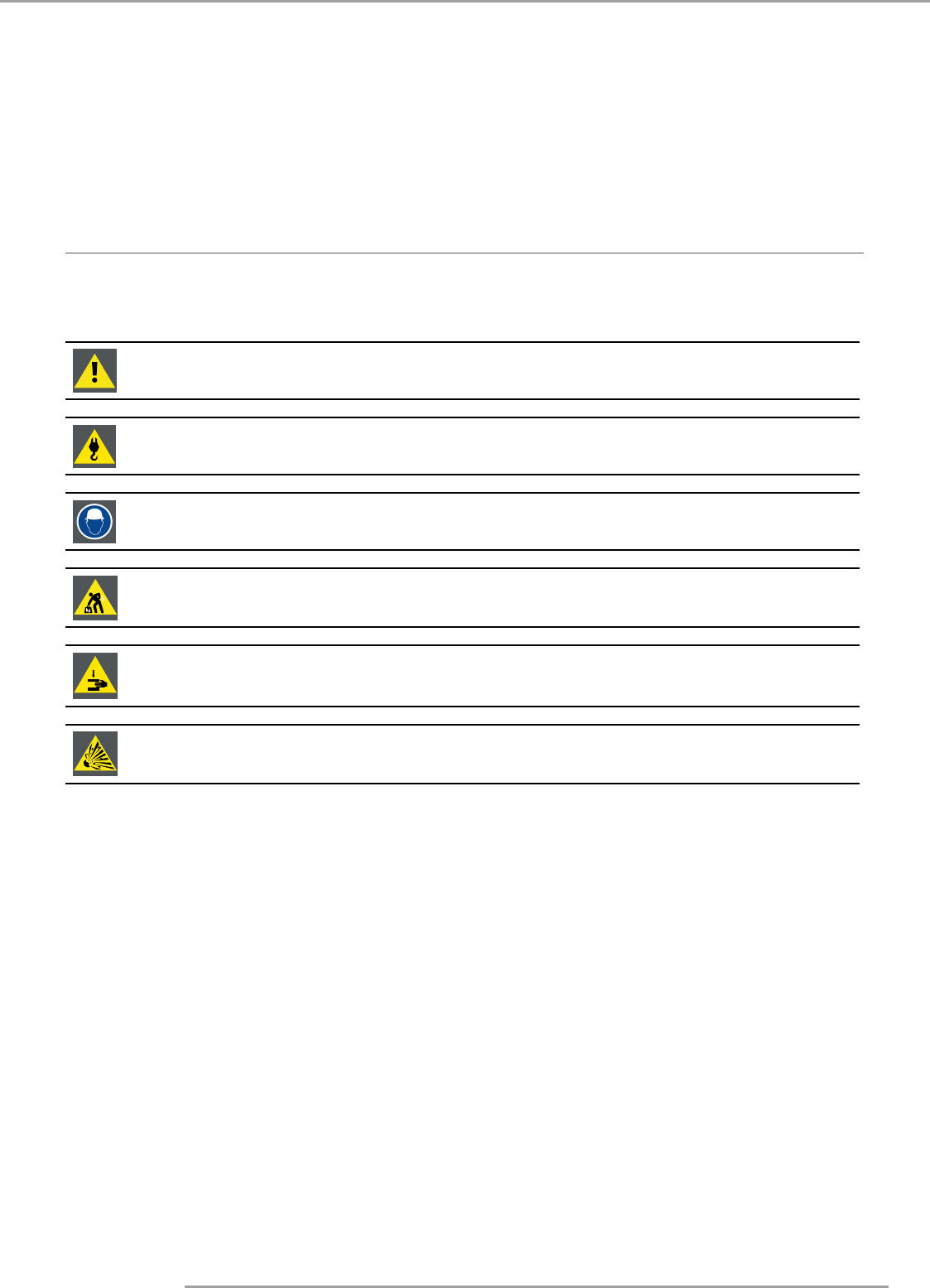
MSWU-81E 29/09/2014
1
1. SAFETY
About this chapter
Read this chapter attentively. It contains important information to prevent personal injury while installing and using a
MSWU-81E projector. Furthermore, it includes several cautions to prevent damage to the MSWU-81E projector. Ensure that
you understand and follow all safety guidelines, safety instructions and warnings mentioned in this chapter before installing
your MSWU-81E projector. After this chapter, additional “warnings” and “cautions” are given depending on the installation
procedure. Read and follow these “warnings” and “cautions” as well.
1.1 General considerations
When referring in this document to the term “Present M” means that the content is applicable for following Barco products:
- MSWU-81E
WARNING: Ensure you understand and follow all the safety guidelines, safety instructions, warnings
and cautions mentioned in this manual.
WARNING: Be aware of suspended loads.
WARNING: Wear a hard hat to reduce the risk of personal injury.
WARNING: Be careful while working with heavy loads.
WARNING: Mind your fingers while working with heavy loads.
CAUTION: High pressure lamp may explode if improperly handled.
General safety instructions
•
Before operating this equipment please read this manual thoroughly and retain it for future reference.
•
Installation and preliminary adjustments should be performed by qualified Barco personnel or by authorized Barco service
dealers.
•
All warnings on the projector and in the documentation manuals should be adhered to.
•
All instructions for operating and use of this equipment must be followed precisely.
•
All local installation codes should be adhered to.
Notice on safety
This equipment is built in accordance with the requirements of the international safety standards IEC60950-1,
EN60950-1, UL60950-1 and CAN/CSA C22.2 No.60950-1, which are the safety standards of information technology
equipment including electrical business equipment. These safety standards impose important requirements on the use of
safety critical components, materials and insulation, in order to protect the user or operator against risk of electric shock and
energy hazard and having access to live parts. Safety standards also impose limits to the internal and external temperature
rises, radiation levels, mechanical stability and strength, enclosure construction and protection against the risk of fire.
Simulated single fault condition testing ensures the safety of the equipment to the user even when the equipment’s normal
operation fails.
1.SAFETY


















